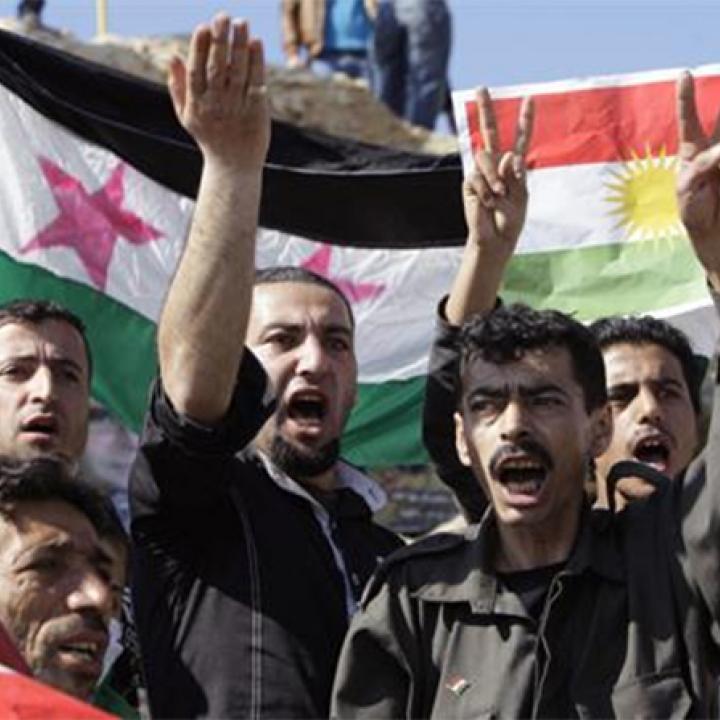
- Policy Analysis
- Fikra Forum
The Kurdish Referendum is Not the End of the World, or Even Iraq

September 23, 2017
Seen from Erbil, the capital of the Kurdistan Region of Iraq, U.S. and other foreign pressure to postpone the September 25 referendum on independence is, as Talleyrand once said, “worse than a sin – it is a mistake.” Popular enthusiasm for independence, and moral arguments about Kurdish suffering and self-determination, partly explain this predominant view. But among the most thoughtful Kurds, beyond any such emotional or ethical drivers, four good practical reasons account for their support for the referendum.
First, and most important, the Kurds themselves have consistently and credibly declared that the referendum, even if passes by a landslide, does not mean a unilateral declaration of independence. Rather, they acknowledge that the next step must be a process of negotiation with Baghdad, with Kurdistan’s other neighbors, and with the international community about the terms of future separation, confederation, or perhaps even an improved version of their existing autonomy. They know this is a gamble, fraught with risks, but feel that the referendum might on balance strengthen their future bargaining position. As a result, most Iraqi Kurds see opposition to the referendum as at best premature.
Second, most Kurds see the specific anti-referendum arguments as illusory. The notion that it jeopardizes the war against the Islamic State seems to them bizarre, on many counts. For one, it is the Kurds who played an outsized role as U.S. allies in the entire campaign against the Islamic State over the past three years, and continue to protect not only large swaths of territory but also two million mostly Arab refugees on Kurdish soil. Moreover, the war against the Islamic State is now mostly won, so the Kurds understandably believe it is high time to move on. And, they say, there is simply no evidence at all that the referendum stands in the way of any further plans against a possible resurgence of the Islamic State.
Related to this point is the Kurds’ unimpeachable claim that any assurances about potential compromises with Baghdad at some later date, provided only that the referendum is canceled, are just not believable. This reasonably reflects their long and bitter experience with a whole series of unfulfilled promises and constitutional commitments from Iraq’s central government: about a referendum in Kirkuk and other disputed territories, about oil revenue sharing, about payments for the Kurdish Peshmerga forces, and more. As a consequence, the Kurds can hardly be blamed for doubting that any new promises made today will ever be fulfilled.
The third, more forward-looking reason most Kurds offer in defense of their referendum is that current overreactions to it will moderate once the vote takes place. It will then be a fait accompli, and outsiders will have little choice but to deal with the aftermath in a pragmatic fashion. As one senior Kurdish official put it privately to the author this week, “We hope that wisdom will prevail.” There is surely some merit to this position, if only because the alternatives appear worse to all parties. For Turkey, in particular, its strenuous rhetorical protests and symbolic military maneuvers against the referendum right now are one thing; but opening up a serious new front against a new enemy on its borders would be something else entirely. Indeed, in separate conversations with the author this week, some senior Turkish officials privately allowed that while their government might well impose some sanctions against Kurdistan if the referendum proceeds, it would be a tragedy for both sides if the remarkable Ankara-Erbil alliance of the past decade collapsed completely afterward.
Fourth, and finally, the other foreign neighbor that looms even larger over this picture is Iran. Many Kurds rightly ask why that should not be one more crucial reason to look past the referendum and on to the larger international interests at stake. Iran is vehemently opposed both to the referendum and to any Kurdish national rights, which would stand in the way of its own hegemonic ambitions in Iraq and well beyond, all the way across Syria and Lebanon to the Mediterranean. So if the United States is serious about confronting that Iranian challenge, the Kurds reason, it should switch gears and stand up for Kurdistan’s defiance of Iran’s increasingly menacing threats.
The best counterargument to this logic is that such a policy adjustment might come at the expense of other partnerships against Iranian expansionism. But the Kurds answer that Ankara, Baghdad, and others all have a common interest in containing Tehran, overriding their narrower concerns about Kurdistan. This is a debatable proposition, but one well worth pursuing in the aftermath of the referendum.
Altogether, for U.S. policy going forward, the preceding considerations strongly suggest a fresh look at the future of Kurdish-American friendship and strategic cooperation, which has borne such good fruit against Saddam Hussein, the Islamic State, and other common enemies for the past quarter-century. The referendum should not be the end of this story, as the most recent State Department statement implied. Instead, the United States should now concentrate on how better to navigate and reconcile the competing demands, and the common concerns, of our diverse potential partners in the region. That includes Turks and Arabs, of course, but also Kurds and others. Handled more wisely, this will still be a daunting yet not impossible task.



